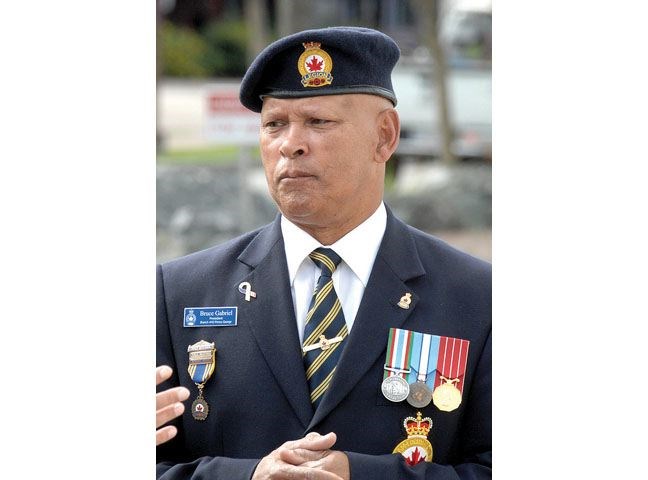Royal Canadian Legion president Bruce Gabriel is banking on Prime Minister Justin Trudeau's new government to keep its promise to reopen shuttered Veterans Affairs offices, including the one closed locally in 2012.
"I'm very hopeful they'll keep their word. And I really believe they will," said Gabriel.
As part of their platform, the Liberal Party said they would reopen the nine regional Veterans Affairs offices as well as hire 400 new service delivery staff as of April 2016.
"Helping veterans access better services is a priority for the Government of Canada," said a statement emailed to The Citizen in response to a question about regional offices being reopened.
"Veterans Affairs Canada is dedicated to serving those who have served Canada and making sure Veterans and their families have the support they need, when they need it."
But on Wednesday afternoon, new Veterans Affairs Minister Kent Hehr appeared on CBC's Power and Politics and during an interview with host Rosemary Barton, Hehr said his department would be looking at the opening of those offices "holistically" and "where they do the most good for most people."
Hehr went on to say that the nine offices that are opened may not be the same nine that were closed by the previous government.
"We're going to do this: ensure veterans have the supports they need with the opening of many new Veterans Affairs offices but put them in the places where they're most utilized, where we can get the most bang for the buck," he said.
When asked by Barton if closing offices where they didn't feel there were enough veterans is what the previous government came under fire for, Hehr said he wasn't certain that it was just the office closures.
"It looked like it was a shock and approach that was meant for budgetary concerns rather than necessarily supporting veterans," he said.
"We're going to look at this as to where we need them and where we get support in place and where we need to have our 400 new staff members serving our veterans, bringing down the ratio of clients they have per service and going along in that fashion."
The closure of the Prince George office three years ago has been a major sore spot for local veterans and those assisting them.
The local arm of the legion has actively been campaigning for the return of services since the office, which was located on Fourth Avenue, shut its doors - one of nine to do so across the country in a bid to cut costs.
Promises to have someone dedicated to veterans at Service Canada, where the work was folded into, went unfulfilled.
So, too, according to Gabriel, was a commitment from Prince George-Peace River-Northern Rockies MP Bob Zimmer to have a member of his office check in weekly with the local legion branch to collect information and concerns.
Gabriel said he wouldn't be reaching out to new Conservative MP Todd Doherty on the issue because veterans who need help should be getting it from a department staffer, not a politician.
"Even if it's the Liberals. If (Liberal candidate Tracy Calogheros) had won, I don't want to go see Tracy if I'm sick. I want to see a Veterans Affairs person that can help me," Gabriel said.
The legion was happy with the selection of Hehr as the new Veterans Affairs head, Gabriel said.
Though he didn't serve in the armed forces, as a paraplegic Hehr can appreciate what some veterans are going through, Gabriel said.
A key step will be getting rid of some of the red tape and hurdles veterans currently face, said the legion president.
"There are some veterans that are really suffering and, present day, people get hurt all the time," Gabriel said. That injury doesn't have to come from the battlefield and it may manifest years later, in the form of post-traumatic stress disorder.
"We need people to understand that and make sure they hire the best people - not half decent - they need the best care they could possibly get."



